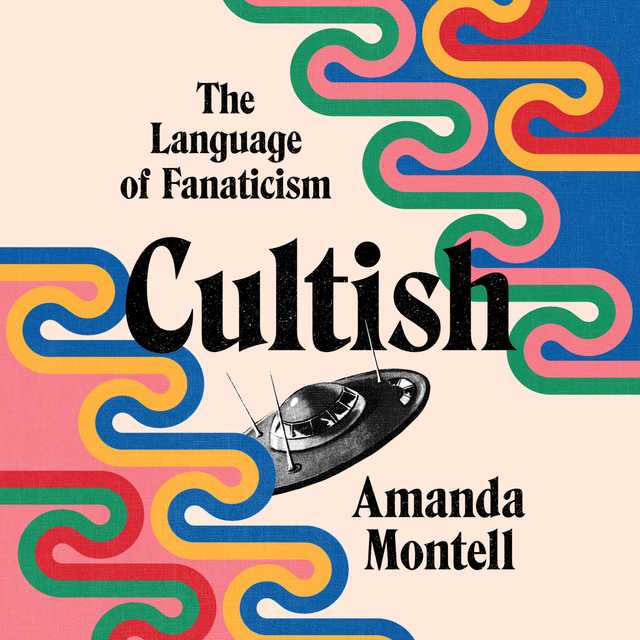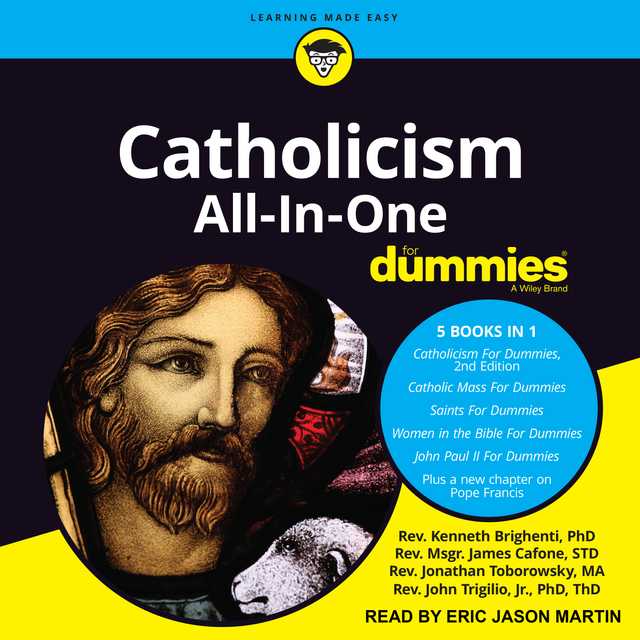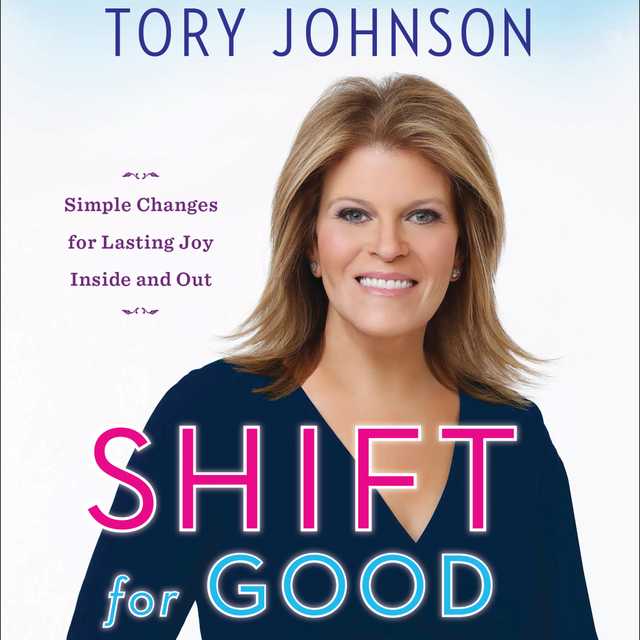Cultish Audiobook Summary
The author of the widely praised Wordslut analyzes the social science of cult influence: how cultish groups from Jonestown and Scientology to SoulCycle and social media gurus use language as the ultimate form of power.
What makes “cults” so intriguing and frightening? What makes them powerful? The reason why so many of us binge Manson documentaries by the dozen and fall down rabbit holes researching suburban moms gone QAnon is because we’re looking for a satisfying explanation for what causes people to join–and more importantly, stay in–extreme groups. We secretly want to know: could it happen to me? Amanda Montell’s argument is that, on some level, it already has . . .
Our culture tends to provide pretty flimsy answers to questions of cult influence, mostly having to do with vague talk of “brainwashing.” But the true answer has nothing to do with freaky mind-control wizardry or Kool-Aid. In Cultish, Montell argues that the key to manufacturing intense ideology, community, and us/them attitudes all comes down to language. In both positive ways and shadowy ones, cultish language is something we hear–and are influenced by–every single day.
Through juicy storytelling and cutting original research, Montell exposes the verbal elements that make a wide spectrum of communities “cultish,” revealing how they affect followers of groups as notorious as Heaven’s Gate, but also how they pervade our modern start-ups, Peloton leaderboards, and Instagram feeds. Incisive and darkly funny, this enrapturing take on the curious social science of power and belief will make you hear the fanatical language of “cultish” everywhere.
Other Top Audiobooks
Cultish Audiobook Narrator
Ann Marie Gideon is the narrator of Cultish audiobook that was written by Amanda Montell
Amanda Montell is a writer and reporter from Baltimore with bylines in Marie Claire, Cosmopolitan, Woman’s Day, The Rumpus, Byrdie.com, and WhoWhatWear, where she is the staff features editor. As a pop linguist, Amanda’s insights have been featured in Glamour, Bustle, Refinery29, Hello Giggles, and Bust Magazine. Amanda graduated from NYU with a degree in linguistics. She lives in Los Angeles. Find her on Instagram @amanda_montell.
About the Author(s) of Cultish
Amanda Montell is the author of Cultish
More From the Same
- Author : Amanda Montell
- Wordslut
- Publisher : HarperAudio
- Abraham
- American Gods [TV Tie-In]
- Dead Ringer
- House of Sand and Fog
- Prey
Cultish Full Details
| Narrator | Ann Marie Gideon |
| Length | 8 hours 21 minutes |
| Author | Amanda Montell |
| Category | |
| Publisher | HarperAudio |
| Release date | June 15, 2021 |
| ISBN | 9780063097919 |
Subjects
The publisher of the Cultish is HarperAudio. includes the following subjects: The BISAC Subject Code is Feminism & Feminist Theory, Social Science
Additional info
The publisher of the Cultish is HarperAudio. The imprint is HarperAudio. It is supplied by HarperAudio. The ISBN-13 is 9780063097919.
Global Availability
This book is only available in the United States.
Goodreads Reviews
Emily
April 21, 2022
If you don't normally pick up non fiction books... this might be for you!I really enjoyed this book. The talks about scientology, MLMs, CrossFit... but I don't think that the focus was on "the language of fanaticism".I read "All About Love" by Bell Hooks earlier this month and this was a great follow up. In that book, Hooks mentions how capitalism and individualism make us lonely. Cultish shows exactly why. Money.Would recommend!
Rhiannon
June 11, 2021
I received a copy of this book from the publisher in exchange for an honest review.I've been recommending this book to everyone. I learned so much and I keep thinking about it--even weeks after finishing it! Cults, cultish groups, religions, cliques, and communities of all types fascinate me. I always think to myself "why are they drawn to this leader, lifestyle, or way of thinking"? When most people think of cults the images that come to their minds are usually horrific (mass suicide in Jonestown, the fires and deaths in Waco, the Manson murders, etc.) and they tend to use the term "brainwashing" as an all encompassing way of stating a massive change in someone's way of thinking. Charismatic leaders have used a variety of techniques to exploit people's desire for community and inclusion for millennia, the most powerful of which is language. Before you think "I wouldn't fall for that" ask yourself about the language used in all of the groups you are a part of in your daily life. Mantras, jargon, acronyms, and group specific phrases, "all inspires a sense of intrigue, so potential recruits will want to know more; then, once they’re in, it creates camaraderie, such that they start to look down on people who aren’t privy to this exclusive code." Some psychologists call this "loaded language" and it is present far beyond the groups that many would be quick to label as a cult. Author Amanda Montell shows how cultish language is present in many common groups in our current society, from SoulCycle and CrossFit to the self-proclaimed Instagram gurus and #bossbabes in multilevel marketing groups (MLMs.) This book really got me thinking about all the ways language can form a community and how any community can quickly become a cult. Come chat with me about books here, too: Blog | Instagram | Twitter | Pinterest
Julie
September 18, 2021
Cultish- The Language of Fanaticism by Amanda Montell is a 2021 Harper Wave Publication. I have not read, ‘Wordslut’, so this is my first experience with Amanda Montell. As a person with a genuine concern, and curiosity, about cults, how they operate, and what draws people to them, this book was a no -brainer for me. It did not surprise me one bit that language is a foundation upon which cults are built. In order to understand how the cult gains its momentum, one must look at the language employed to lure people into making a dedicated commitment to whatever activity, group, organization, or religion is being promoted. Today, the word 'cult' is used in a variety of ways, and it doesn't necessarily conjure up a sinister connotation- Like 'cult' movies, for example. I grew up in an age of cults-and the word was not tossed about so glibly. Cults got lots of press, for good reason, and it was serious stuff. It's a phenomenon, under any guise, that never ceases to amaze me. A con man- like Charles Manson could convince people to commit murder, Jim Jones could coax, ( or force), people into drinking poison. Now, though, as religion has diminished in our country, instead, of the usual cult behavior centered around a religious-like belief system, no matter how fundamental or far-fetched- that same cult-ish language is showing up in other places- like in exercise and fitness groups, online influencers, and QAnon, for example. Other than language, the biggest lure is being a part of a group or filling a need for a sense of belonging. It’s also on some level a desire to better oneself – spiritually, intellectually, and physically. Nxivm started out as a self-help group. Synanon started out as a drug rehab program. Today’s ‘wellness’ gurus and influencers zero in health and well-being.People who ‘follow’ and participate in the rituals of these groups, teams, or clubs- spout off a specific jargon unique to them, they wear the clothes, eat the food, and adhere to rigid rules- all without realizing, in the moment, they are exhibiting the same cult-ish loyalty as those fanatical religious cults in the seventies. This book makes a strong case for the way people fall into these patterns, how language plays a role, and the way the cult-ish vernacular has invaded seemingly innocuous groups or organizations- and are often heard in motivational or marketing speeches, in our everyday world. While, in the past, we have often dismissed cult members as having been brainwashed- the author cautions against thinking in those terms. While I can see her point, I still think people can be mentally conditioned over time. It’s a fascinating book, and certainly gives one pause. I still think people are searching for something – but are looking in the wrong places for it. I did learn about some disturbing behaviors I had not heard of and took into consideration some phrases we toss about that are offensive, if you think about it. The author has recommended some further reading as well- so I’m off to look for Tara Isabella Burton’s ‘Strange Rites’- so stay tuned…Meanwhile, I'll stick to self motivation- on my elliptical- at home- no instructor needed- and nothing cult-ish about it. 4 stars
Andrea
March 23, 2021
Witty, slick, and self-assured, CULTISH will change the way you view the interplay between language and power. Yes, it sparkles with muscular prose and snappy asides, but this book's true wizardry is how Montell peels back the veneer over topics we're confident we already understand—brainwashing, indoctrination, even the term "cult" itself—and demonstrates how a few potent verbal tricks, wielded correctly, render us more susceptible to cultish influences than we'd like to think. Compulsively readable and startlingly of-the-moment, CULTISH is as intriguing as the charismatic leaders and spellbinding groups it examines.
Denise
March 28, 2021
A page-turner! This book is important. Montell breaks down the psychosocial influences that entice and reward people for joining communities that promise enlightenment and self-improvement. While most provide some sort of tangible rewards, others strip followers of money, autonomy, and even their lives. How can you tell a relatively benign self-improvement program from a suicide cult? How can you protect yourself without giving up on humanity? Cultish spells it out. Critical knowledge for everyone because we are surrounded by cultish language and influences and we need to see clearly what our would-be gurus are really up to.
Ashley
March 29, 2021
I loved this book! Montell writes in a language that is both scientific but accessible to someone like me, a complete lay person who has no background in anything discussed within the book. As someone who generally DNF non-fiction books, I found myself unable to put this one down. The connections that Montell drew between seemingly every day things like social media influencers and the language of cults, as just one broad example, (or cult leaders/recent world leaders and the idea that say-it-like-it-is honesty leadership is really just having a lack of filter) made sense in the way she presented them. I really enjoyed this book and took copious notes throughout the whole thing. I'm looking for thought-terminating cliches in everyday conversations everywhere I turn now. I can't wait to read more of Montell's writings.
Rachel Reads Ravenously
May 15, 2022
4 stars Cultish is a broad examination of the language of cults by linguist Amanda Montell, and this book really focuses more on the language of cults. Whether it be the language of an actual cult like Heaven’s Gate or groups that use cult like language such as soul cycle. Montell is not saying all of these things are actual cults, but their rise and everyday use of language is cult like.I thought this book was incredibly fascinating and I thought the author did a wonderful job of keeping things broad on the subject and using specific examples to emphasize her points. I think what a lot of people misunderstand when reading this book is she’s not calling things like Soul Cycle or Crossfit cults, but instead pointing out where their success follows cultish language. This book really made me think about the use of the word “cult” and how it can used to add malicious tones to something that really isn’t. It’s also not a bad thing for there to be a group mindset on something as long as people aren’t getting hurt. Despite the author kind of pointing out that people are not necessarily “brainwashed” when entering a cult, I do think there’s a level of reconditioning that happens to people when they do. Just because someone is intelligent doesn’t mean they aren’t vulnerable to their wants and needs.One of the more interesting books I’ve read recently, I think this is a great nonfiction book for people who don’t normally read the genre. It gives a good scope of the topic but doesn’t become dry or dull with the finer details of the subject.
David
July 18, 2021
The erosion of faith and community has left a vacuum for people starved for connection. A distrust of traditional institutions and a need to belong has proven fertile ground for the growth of cults from the tame to the terrifying. And it's not just credulous smooth brains — the people most likely to join a cult are generally intelligent, cheerful and most of all, optimistic. They are seeking some better way. And whether it's Scientology or SoulCycle, cults and cult-like brands rely on language to reel us in. From love bombing to the aspirational slogans in the MLM world like "Build a fempire!", "Be a mompreneur" moving to the thought-terminating cliches built to shut down analytical thought like "trust the plan", "Don't be ruled by fear" and "the awakening is bigger than all of this" — these linguistic patterns are made to ensnare. Cultish language Montell writes, does three things; it makes people feel unique while connected to a larger community; it encourages people to feel dependent on a particular leader, group, or product and it convinces people to act in ways that are often in conflict with their former sense of self. Language works to clearly demarcate believers from non-believers and establishes an us-versus-them binary.Cults exist on a continuum so before you go off feeling smug about how you are too smart to be taken in by simple linguistic tricks examine how your own language reinforces your allegiances and defines your tribe. Do you disparage the sheeple, the SJWs who need to be red-pilled and join the Trumpire? Or are you circling back to get buy-in on the low hanging fruit to become the next disruptive change agent on the bleeding edge of tech. (sorry, I just threw up a little in my mouth there) Still a far reaching and fun read.
Mara
August 20, 2021
This felt like the more formally researched and argued version of a lot of TikToks I've enjoyed... and I mean that in the best possible way. This was a distillation of many disparate ideas floating in the internet zeitgeist, and it was interesting to see those ideas brought together in a cohesive, persuasive format. Definitely interested in more from this author, as an intersection of linguistics and pop culture seems to be her thing
Abena
March 27, 2021
Wow Montell strikes again! Such an incredible commentary on humans yearning for connection and how it has manifested into cults. From Jonestown to SoulCycle, Amanda does an exceptional job of a painting this tapestry on human nature with great historical references, personal anecdotes, and some good old fashioned human psychology. Couldn’t put this book down! Can’t wait for it be out IRL!
Jamie
June 18, 2021
Montell takes a deep dive into cults, specifically the language used in order to gain and sustain power, and has written a book that is fascinating, eye-opening, and just a dash terrifying. It’s written in a completely accessible way—perfect for any reader who loves playing the “did you know” game—since Montell seems to be a person who is just herself fascinated by cults. That fascination stems from learning as a young child that her father escaped a cult his parents raised him in.You get histories on some of the most known cults—and the realization that you may have been holding onto incorrect information all this time—but the book casts a wider net in looking at how that same language is also used by companies and in social media marketing. The question then becomes: when is it used for good, bad, or a middle ground?A few things I found particularly interesting that are still bouncing around in my brain: brainwashing doesn’t exist and is widely not accepted by experts; the beginning key element of cults is creating an “us vs them” dichotomy, something playing out very loudly recently in U.S. politics; the cult member who survived the mass killing in one cult then later joined another cult. If your brain has been craving an engrossing read lately, this is your book.(TW mass suicide cult case/ guru who uses triggering language related to suicide discussed in detail/ mentions suicide case, detail/ mentions cult leaders and doctrines allowing all types of abuse, including sexual assault, not detailed)--from Book Riot's Unusual Suspects newsletter: https://link.bookriot.com/view/56a820...
Rachel
April 06, 2021
Just when I thought I knew all there was to know about Jonestown, Scientology, and all things disturbing and culty, I could not put this book down!! Cultish had me entirely captivated and awash with new fascinating details of the stories I thought I knew and ones I have not even considered. I was hanging on every word of Montell’s linguistical analysis of the Jonestown death tape (and as a true-crime fanatic, I have already listened to it an embarrassing number of times). Moving from suicide cults to religious cults, to those sneaky and slippery MLMs that we find so many of our former high school classmates posting about on Instagram (you know—the posts where everything is smiley, beautiful, and "life-changing," but it is hard to figure out what they are actually selling?) Montell cracks open how language entices us into different worlds and how it convinces and coerces us to stay despite the terror, better judgment, woo woo, etc. we might encounter. This book will push readers to recognize how language facilitates induction into not only those terrifying classic cults we are all obsessed with but also the cults we have willingly joined in our everyday lives! Montell’s writing is beautiful, hilarious, and weaves together so many cultish stories that I could not pull myself away from. If you are at all intrigued by the power of language, cults, religion, multi-level marketing, all the craziness of Qua-non, or even SoulCycle, you NEED to read this book!!
Forsyth
June 16, 2021
Through a combination of storytelling and research, Montell examines what causes people to join and remain in cults, with a specific focus on how linguistic patterns affect followers. It explores suicide cults, including Jonestown and Heaven’s Gate; controversial religions like Scientology and Children of God; multilevel marketing companies; cult fitness studios; and social media gurus. This book is important right now not just because of the cultish verbal elements that pervade modern startups, Peloton leaderboards, and social media feeds, but because of the ways cultish language is being employed by the fascist leaders of the growing far-right, across the globe—including, of course, our former president. Cultish concludes with an interrogation of QAnon. I highly recommend this for both the enthralling content and thoughtful insights. Once you read it, you'll never hear language the same way again!
Brynn | readyourworriesaway
June 14, 2021
Thank you @amanda_montell + @harper_wave for the gifted book!I have always been interested in learning about cults. But I never thought about how big of a role language plays. Amanda Montell does not judge people for getting involved in cults or cultish groups, but instead explains how the cultish language pulls people in who are looking for connections. I had heard of the notorious “suicide cults” like Jonestown and Heaven’s Gate, and the religious cults like Scientology, which Montell explores in parts 2 and 3. In part 4 she delves into multilevel marketing companies (MLMs), part 5 covers “cult fitness” studios, and part 6 discusses social media gurus. Whether the group is positive or dangerous, each has a specific language that is used, and we are influenced by that language every day. Amanda Montell blends research with personal experiences and the experiences of people that she interviewed. The chapters of this book led to discussions with my dad about cult influence, and how we have seen cultish language used. I highly recommend picking this one up!
Most Popular Audiobooks
Frequently asked questions
Listening to audiobooks not only easy, it is also very convenient. You can listen to audiobooks on almost every device. From your laptop to your smart phone or even a smart speaker like Apple HomePod or even Alexa. Here’s how you can get started listening to audiobooks.
- 1. Download your favorite audiobook app such as Speechify.
- 2. Sign up for an account.
- 3. Browse the library for the best audiobooks and select the first one for free
- 4. Download the audiobook file to your device
- 5. Open the Speechify audiobook app and select the audiobook you want to listen to.
- 6. Adjust the playback speed and other settings to your preference.
- 7. Press play and enjoy!
While you can listen to the bestsellers on almost any device, and preferences may vary, generally smart phones are offer the most convenience factor. You could be working out, grocery shopping, or even watching your dog in the dog park on a Saturday morning.
However, most audiobook apps work across multiple devices so you can pick up that riveting new Stephen King book you started at the dog park, back on your laptop when you get back home.
Speechify is one of the best apps for audiobooks. The pricing structure is the most competitive in the market and the app is easy to use. It features the best sellers and award winning authors. Listen to your favorite books or discover new ones and listen to real voice actors read to you. Getting started is easy, the first book is free.
Research showcasing the brain health benefits of reading on a regular basis is wide-ranging and undeniable. However, research comparing the benefits of reading vs listening is much more sparse. According to professor of psychology and author Dr. Kristen Willeumier, though, there is good reason to believe that the reading experience provided by audiobooks offers many of the same brain benefits as reading a physical book.
Audiobooks are recordings of books that are read aloud by a professional voice actor. The recordings are typically available for purchase and download in digital formats such as MP3, WMA, or AAC. They can also be streamed from online services like Speechify, Audible, AppleBooks, or Spotify.
You simply download the app onto your smart phone, create your account, and in Speechify, you can choose your first book, from our vast library of best-sellers and classics, to read for free.
Audiobooks, like real books can add up over time. Here’s where you can listen to audiobooks for free. Speechify let’s you read your first best seller for free. Apart from that, we have a vast selection of free audiobooks that you can enjoy. Get the same rich experience no matter if the book was free or not.
It depends. Yes, there are free audiobooks and paid audiobooks. Speechify offers a blend of both!
It varies. The easiest way depends on a few things. The app and service you use, which device, and platform. Speechify is the easiest way to listen to audiobooks. Downloading the app is quick. It is not a large app and does not eat up space on your iPhone or Android device.
Listening to audiobooks on your smart phone, with Speechify, is the easiest way to listen to audiobooks.






























